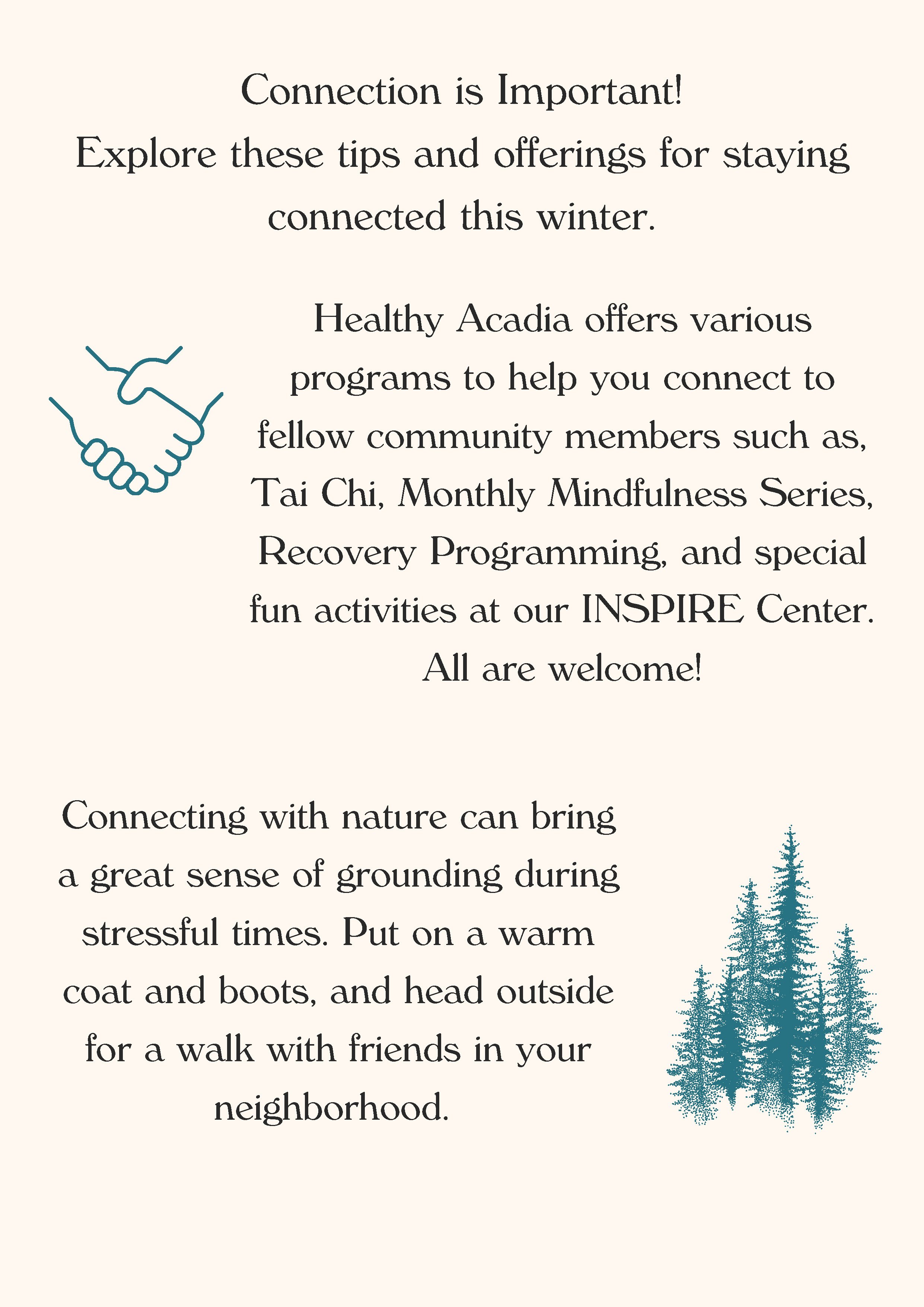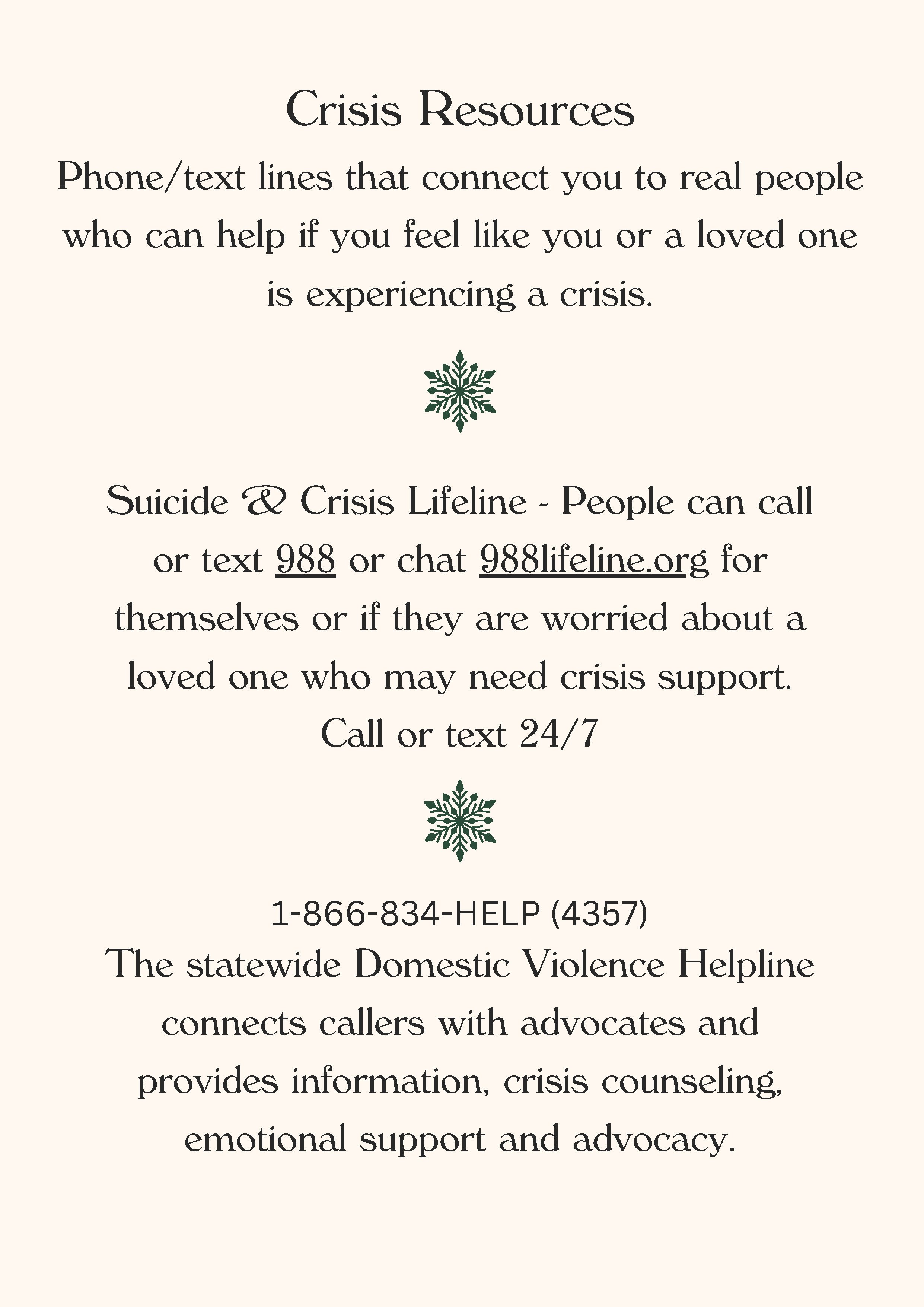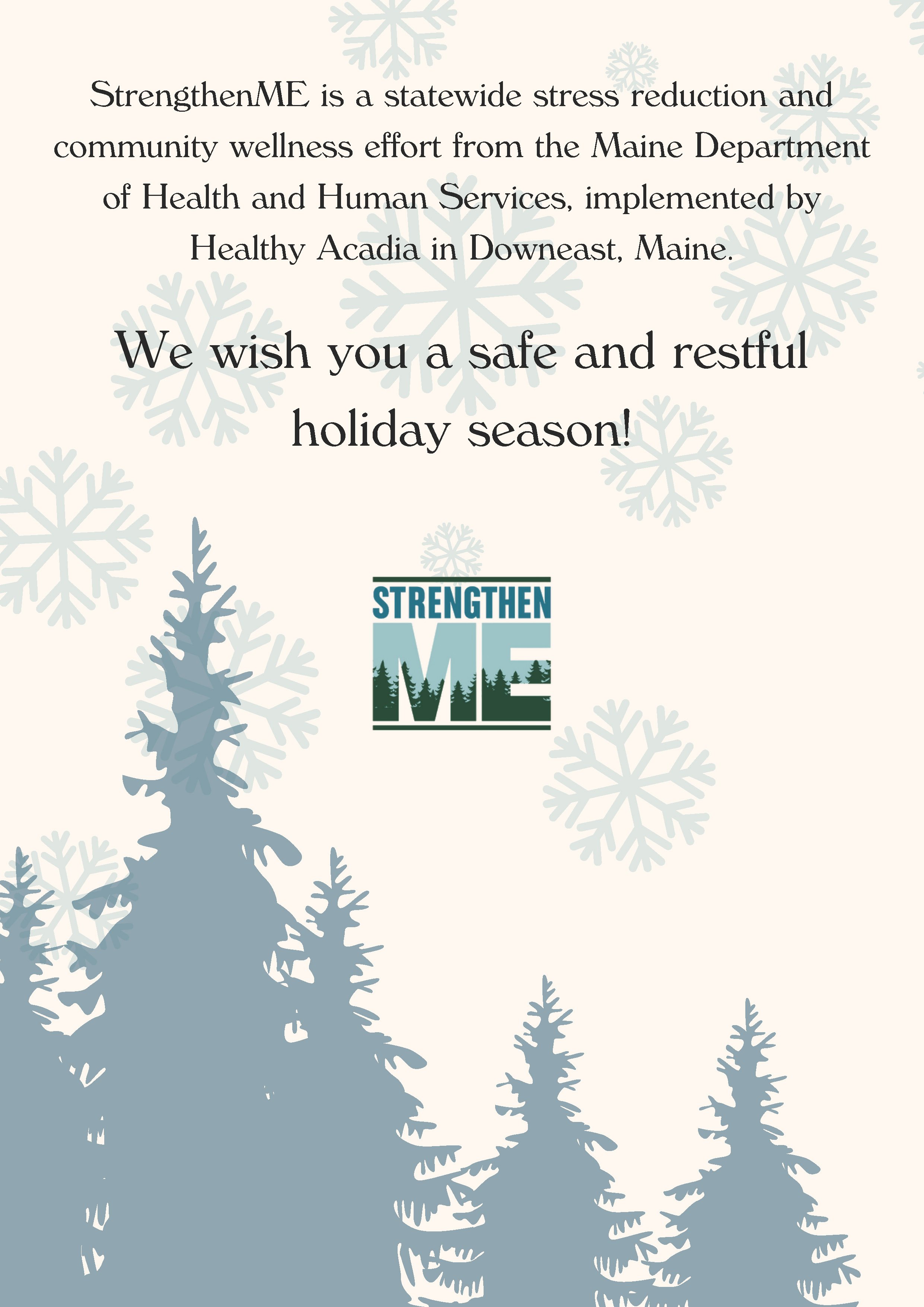Resiliency Corner: Building Resilience, and a Holiday Stress Management Guide
Post contributed by Audra Stewart-Gordon, Community Health and Communications Coordinator. Holiday Stress Management Guide contributed by Audra Stewart-Gordon and Dani Robbins, Community Health Coordinator
Research has shown that while some people seem to come by resilience naturally, these behaviors can also be learned. Whether you're going through a tough time now or you want to be prepared for future challenges, you can build resilience by:
Finding purpose - Finding a sense of purpose can help you find meaning in life's challenges. Instead of being discouraged by your problems, with a defined purpose, you'll be more motivated to learn from past experiences and keep going.








Believing in yourself - Having confidence in your ability to cope with the stresses of life can play an important part in resilience. Becoming more confident in your abilities, including your ability to respond to and deal with a crisis, is a great way to build resilience for the future. Listen for negative comments in your head. When you hear them, practice immediately replacing them with positive ones.
Developing a social network - It's important to have people you can confide in. Having caring and supportive people around you acts as a protective factor during times of crisis.
Embracing change - Flexibility is an essential part of resilience. By learning how to be more adaptable, you'll be better equipped to respond when faced with a life crisis. While some people may be crushed by abrupt changes, highly resilient individuals can adapt and thrive.
With the holidays comes added stress. Our guide is here to help, offering practical tips and resources to keep calm and find peace of mind this season. To view, download, and/or print a PDF version of the guide, click here.
Being optimistic - Positive thinking does not mean ignoring the problem in order to focus on positive outcomes. It means understanding that setbacks are temporary and that you have the skills and abilities to combat the challenges you face.
Nurturing yourself - Make time for activities that you enjoy. By taking care of your own needs, you can boost your overall health and resilience and be fully ready to face life's challenges. Here are some daily self-care tips: Self-Care: What It Looks Like and How to Practice Each Type
Developing problem-solving skills - Research suggests that people who can come up with solutions to a problem tend to cope more productively with stress compared to those who cannot find solutions to problems. Whenever you encounter a new challenge, make a quick list of some of the potential ways you could solve the problem.
Establishing goals - Crises are daunting. When you find yourself becoming overwhelmed by a situation, take a step back to simply assess what is before you. Brainstorm possible solutions, and then break them down into manageable steps.
Taking action - Actively working on solutions will also help you feel more in control. Rather than just waiting for things to happen, being proactive allows you to help make your goals a reality.
Committing to building skills over time - Resilience may take time to build, so don't get discouraged if you still struggle to cope with problematic events. Everyone can learn to be resilient, and it doesn't involve any specific set of behaviors or actions. Resilience can vary dramatically from one person to the next.
